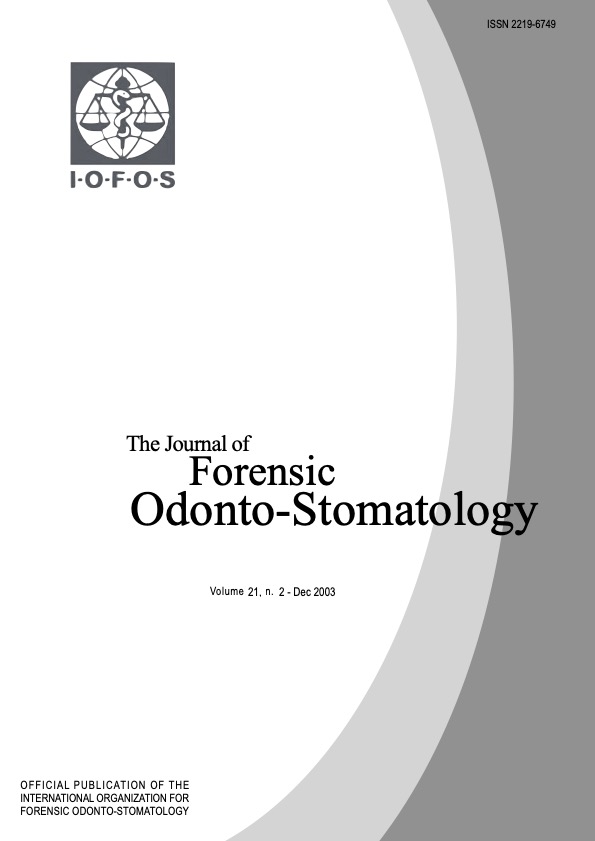Isolation and genotypic comparison of oral streptococci from experimental bitemarks
Abstract
The feasibility of recovering and genotypically comparing oral bacteria from bitemarks for forensic purposes was assessed experimentally. Volunteers firmly bit their own upper arms and bitemarks were sampled at intervals to recover viable Streptococcus isolates. The recoverability of bacteria decreased over time but an average of more than one thousand viable organisms was recovered 24 hrs after biting, provided the site remained relatively undisturbed. Physical exertion, manual rubbing and application of moisturizing lotion all decreased bacterial recoverability compared to controls. Streptococci could also be recovered from bites inflicted on various fabrics. Genomic profiles (DNA "fingerprints") of bacteria recovered from bitemarks could be identified exclusively with those from the teeth of the individual responsible. These findings suggest that a bacterial genotyping approach to bitemark analysis could have forensic application in situations where the perpetrator's DNA cannot be recovered from an oral contact site.

